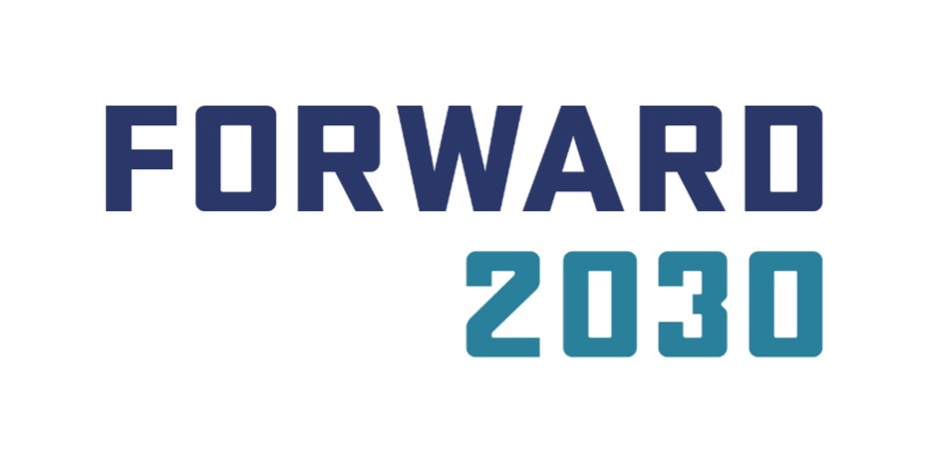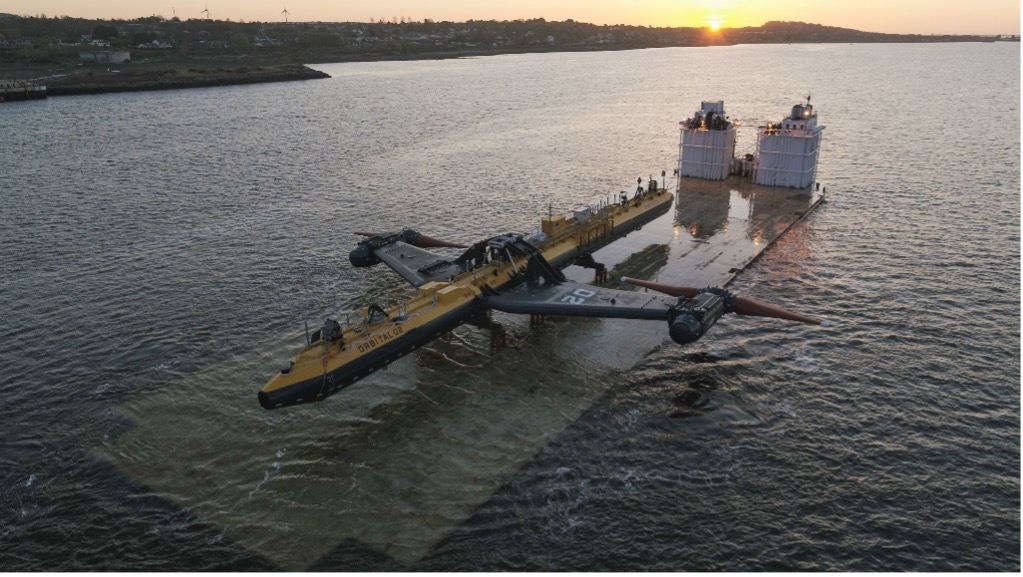
FORWARD2030

- Title
-
FORWARD2030: Fast-tracking Offshore Renewable energy With Advanced Research to Deploy 2030MW of tidal energy before 2030
- Start Date
-
1st Sept. 2021
- End Date
-
31st August 2025
- Funding Body
-
CINEA
- Coordinator
-
Orbital Marine Power Ltd.
- Project Partners
-
EMEC Ltd., Engie Laborelec, SNF Group, University of Edinburgh and MaREI at University College Cork.
- Principal Investigators
- Research Area
- Website
Introduction
Orbital Marine Power lead the €26.7m pan-European FORWARD2030 project set up to accelerate the commercial deployment of floating tidal energy. The FORWARD2030 project consortium seeks to develop a multi-vector energy system for the future. This system will combine predictable floating tidal energy, wind generation, grid export, battery storage and green hydrogen production. The project will also see the installation the next iteration of the Orbital turbine, integrated with a hydrogen production facility and battery storage at the European Marine Energy Centre (EMEC) in Orkney, Scotland. Project partners will design options for integrating large-scale tidal power into future net zero energy systems, whilst developing environmental monitoring and marine spatial planning tools for large floating tidal arrays.
Aim
FORWARD2030 has an overall objective to fast track 2030 MW of tidal energy deployment by 2030. The project has five specific objectives:
- Reducing Levelised Cost of Energy (LCOE) from €200/MWh to €150/MWh,
- Enhancing environmental and societal acceptance,
- Complete industrial design for volume manufacture rollout for 10 and 100+ MW projects,
- Reducing life cycle carbon emissions by 33% from 18 gCO2 eq/kWh to 12 gCO2 eq/kWh,
- Enhancing commercial returns and energy system integration (with battery storage and green hydrogen production).
UCC-MaREI’s contribution is primarily to the objective related to enhancing environmental and societal acceptance. Specifically we are working on Work package 10 ‘Techno-economic, socio-economic and marine spatial planning’. UCC-MaREI is responsible for the Maritime Spatial Planning (MSP) aspects. Drawing on the operational phase, this work will consist of providing an evidence case to marine spatial planners to inform the rollout of floating tidal stream energy, both in Scotland and in other parts of the EU. This is relevant as floating tidal energy is a relatively new form of ocean energy and there are limited real-life examples of its deployment. Maritime spatial planners will have a role in deciding how to use marine space in future so it is vital that they know how floating tidal technologies operate in terms of their environmental impacts but also if and how they can also co-exist with other marine uses/users such as shipping and navigation, fisheries etc. The real-life deployment in Orkney will help to answer these questions and alert planners to the factors they should consider when zoning areas for marine renewable energy deployment or when making consenting decisions.
Work Packages
WP1 Project Management
WP2 Rockbolts development
WP3 Blades Development
WP4 Powertrain and O&M Optimisation
WP5 Control System Optimisation
WP6 Energy Management and Array Break
WP7 Industrial Design for Volume Manufacturing
WP8 Build and Deployment
WP9 Operation and monitoring
WP10 Techno-economic, Socio-economic impact and marine spatial planning
WP11 Communication and Dissemination
WP12 Exploitation
Photo Gallery

Photo credit: Orbital Marine Ltd.



